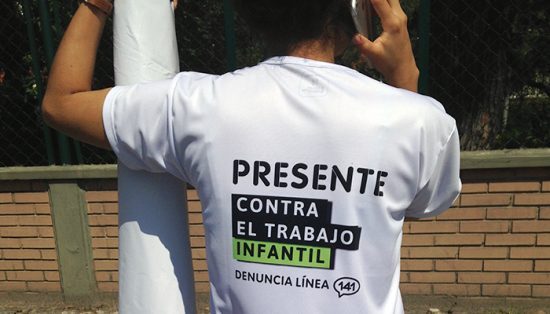
20 Mar Addressing the Needs of Children in Adversity by Strengthening Colombia’s Social Welfare Workforce
The USAID HRH2030 program is pleased to partner with the Colombian Family Welfare Institute (Instituto Colombiano de Bienestar Familiar – ICBF) to provide technical assistance to strengthen the country’s social service workforce. The overarching objective of the two-year activity —HRH2030’s first in Latin America — is to increase national and district-level human resource capacity to provide child welfare and protection services.
“We are very excited to work with ICBF. They are truly committed to providing quality social services throughout the country, which is no easy task when the needs are so great,” said Ellen Eiseman, Chemonics’ project management unit director for the HRH2030 Colombia activity.
Recently emerging from a civil conflict that spanned 50 years, the government of Colombia has demonstrated a strong commitment to the country’s children and to past generations of young people affected by long-term violence and unrest. As a result of the decades-long conflict, thousands of boys and girls have been killed, injured, orphaned, forcibly displaced, recruited into armed groups, sexually abused, and kept out of schools.
When the government and The Revolutionary Armed Forces of Colombia, the country’s largest armed opposition group, signed the final peace accord on September 26, 2016, national data showed one-third of the more than eight million people registered as victims of the conflict were children. Since data collection began in 1985, roughly 2.3 million children have been displaced and 8,000 have disappeared.
In response, the government of Colombia developed a multisectoral early childhood development strategy and implementation plan, including “From Zero to Forever” an inter-sectoral national strategy to ensure that every child in Colombia — particularly the most vulnerable — is guaranteed the constitutional right to free healthcare and education in the early childhood years.
Still in its early stages, HRH2030’s work in Colombia has focused initially on evaluating service gaps, assessing training needs, and understanding work flow and linkages among various national and international stakeholders.
“I’ve never worked with social service providers and stakeholders who demonstrate such clear recognition that children represent our future,” said Susan M. Gallego, American International Health Alliance’s Social Welfare Advisor for the HRH2030 Colombia activity.
“They get this at all levels of the system, perhaps even more than we do in the United States. They understand the impact of so many years of conflict on the country’s children and are committed to providing comprehensive care and support services,” the 30-year veteran social work practitioner and educator added.
As the international community celebrates World Social Work Day on March 20, USAID and the HRH2030 team will convene a two-day strategic planning meeting to finalize priorities and chart a course for targeted activities that will strengthen Colombia’s social welfare workforce for the years to come.
Colombia is a priority country for the U.S. Government’s Action Plan on Children in Adversity and receives support for interventions targeting vulnerable children from USAID, as well as the U.S. Departments of Health and Human Services, Labor, and State.
Photo: An activist joins a rally on February 20 in Bogotá, Colombia as part of Instituto Colombiano de Bienestar Familiar’s campaign against child labor.





